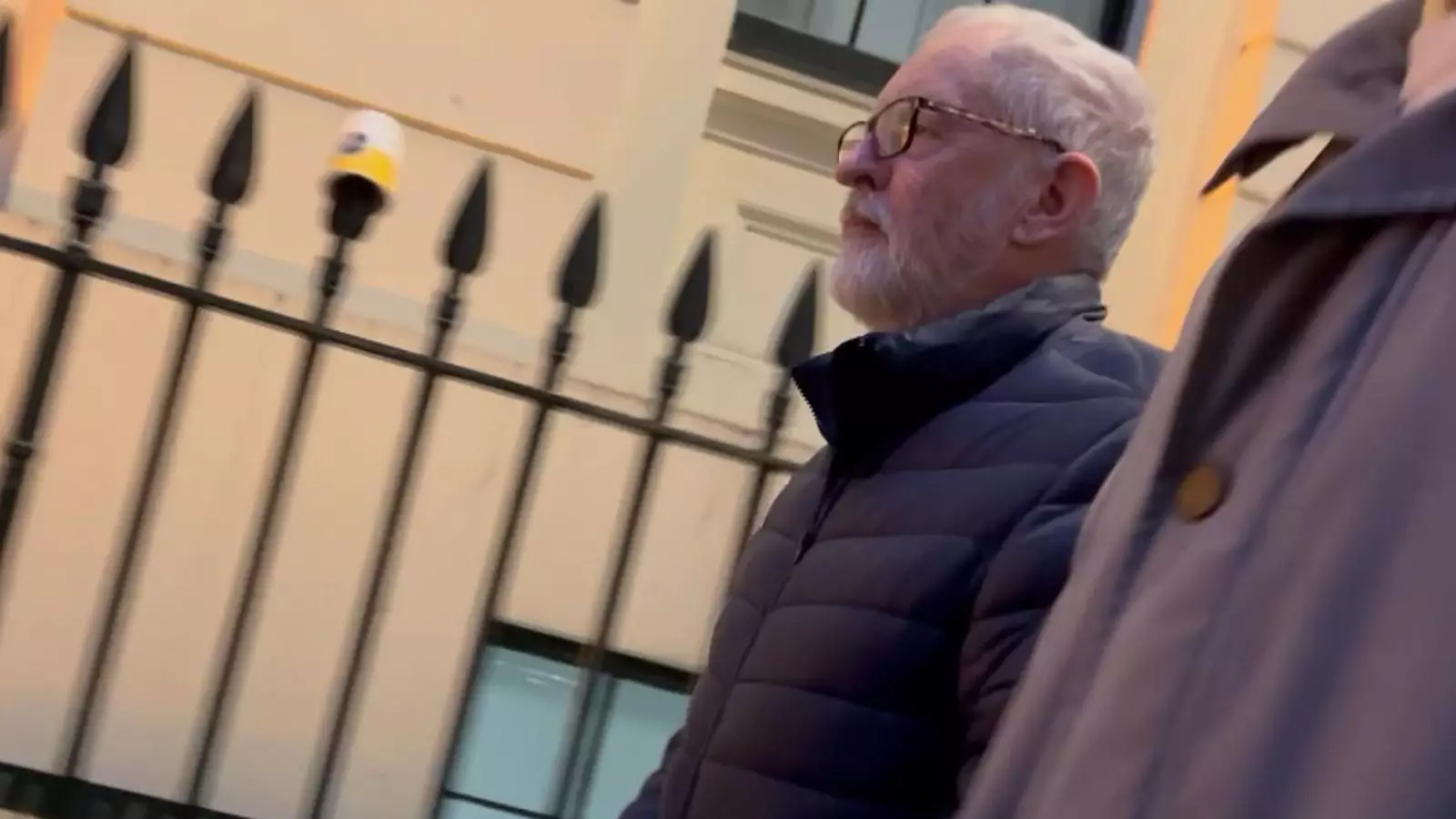The pro-Palestinian rally that took place in central London recently has sparked significant controversy, especially in light of the ongoing conflict between Israel and Hamas. The demonstration, organized by the Palestine Solidarity Campaign (PSC), aimed to express solidarity with Palestinians in the wake of a fragile ceasefire. However, tensions mounted as the Metropolitan Police enforced restrictions on the protest, leading to allegations of excessive force and public order offenses. This backdrop sets the stage for the involvement of prominent political figures such as Jeremy Corbyn and John McDonnell, whose recent interviews under caution by law enforcement have ignited further debate about the protest’s legality and the police’s handling of the situation.
According to reports, the Metropolitan Police observed what they described as a “deliberate effort” by protestors to breach conditions set for the event, particularly regarding maintaining a static protest to prevent crowded gatherings near sensitive sites. This claim was categorically rejected by the PSC, which accused the police of heavy-handed tactics that compromised peaceful assembly. The accusations of police misconduct raise critical questions about the balance between maintaining public order and facilitating democratic expression. Rather than merely enforcing regulations, the police’s actions can be interpreted as stifling free speech, particularly given the nature of the protest, which was aimed at promoting awareness of a humanitarian crisis.
Jeremy Corbyn and John McDonnell, key figures in the Labour Party’s recent history, have always been vocal advocates for Palestinian rights. Their participation in the rally and subsequent police interviews underline their commitment to the cause, but they find themselves in a precarious legal situation. Photos taken of the pair leaving Charing Cross Police Station illustrate their somber demeanor as they navigated the media frenzy surrounding the event. The fact that they chose to not comment upon leaving has led to heightened scrutiny about the implications of their involvement and what it means for their political futures.
The conflicting accounts of the police’s actions and those of the PSC emphasize the complexity of the narrative at play. In a social media rebuttal to police statements claiming that protestors had “forced their way through” police lines, Corbyn explicitly described his experience as one where he and others were allowed to approach the police line before stopping to lay flowers in memory of deceased children in Gaza. This sentiment was reinforced by McDonnell, who echoed the same narrative of peaceful protest. Their testimonies highlight a growing divide between grassroots movements advocating for Palestinian rights and the established authorities tasked with policing these demonstrations.
The arrest and subsequent charges filed against nine individuals, including Corbyn’s own brother, Piers, spotlight the potential ramifications of engaging in political activism in the current climate. The actions taken by law enforcement reflect broader societal tensions regarding protest rights and the policing of dissent. Moreover, the fact that individuals are facing court charges raises alarms about the possible chilling effects on future protests, potentially dissuading citizens from voicing their opinions for fear of legal repercussions.
As the conflict continues and public sentiment towards Palestinian rights grows, the role of protests cannot be underestimated. Demonstrations like the one held in London are vital for amplifying voices that might otherwise be ignored by mainstream media. However, these instances also illustrate the challenges activists face in such politically sensitive environments. The events surrounding the recent rally have brought to the forefront the persistent struggle for representation and justice for Palestinians. The actions of political figures like Corbyn and McDonnell may not only affect their own political trajectories but also the larger discourse on Palestine and international human rights.
The intersection of politics, protest, and policing reveals a tableau rich with implications for the future of activism in Britain. The case of Jeremy Corbyn and his colleagues provides a microcosm of the broader fight for Palestinian rights and the challenges that accompany it in the face of significant hurdles imposed by law enforcement. The narrative unfolding from this incident will likely influence public opinions and political strategies moving forward.

Leave a Reply